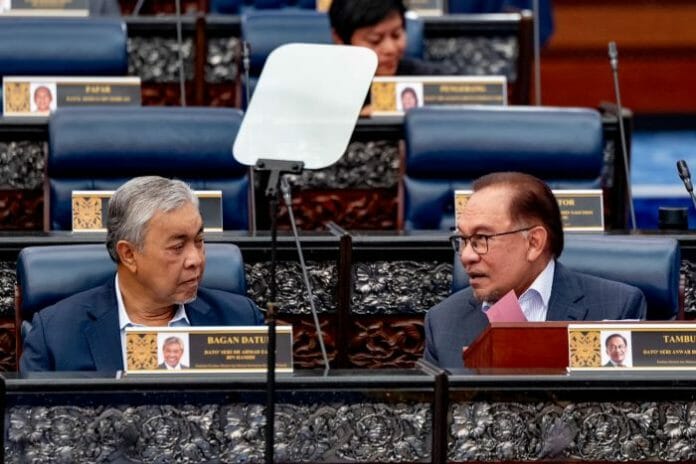The Institute of Democracy and Economic Affairs said it welcomes the extensive mid-term review which shows that, overall, the current administration continues the plan’s focus on the key issues of poverty eradication, narrowing the inequality gap, attracting FDIs, and transparency in fiscal spending, nevertheless, its CEO Dr Tricia Yeoh said the additional RM15 billion could add to the country’s debt burden.
She also highlighted that based on the review, “As a country aspiring to be a high-income country in the next 5 years, we are off the mark. To date, median monthly wages are recorded to be at RM2250, while the target set is RM2900 per month by 2025. The share of wages today is only 32% of GDP, still below the mark of 40% Hence, there is an urgent need for policies and incentives used in the RMK-12 to be revisited and improved upon, to overcome the challenges arising from meeting the given targets by 2025.”
The additional RM15 billion to the development expenditure will be translated to at least RM90 billion planned expenditure annually. While the increase is positive, historically the government has not had the capacity to fully utilise the allocated expenditure. Budget documents suggest that the government only managed to spend around 91% of the estimated development expenditure from 2011-2021, except in 2018 where the government spent more than the estimates.
The increase would have some implications on Malaysia’s debt burden. While the Minister of Economic Affairs states that Malaysia would still maintain a fiscal deficit target of 3.5% by 2025 despite the increase, such a statement should be backed by mid-term expenditure and revenue forecasts. Malaysia’s development expenditures have been almost fully financed by loans, as more than 97% of the revenue goes to operating expenditure. To achieve RMK-12’s fiscal targets, there is an even greater need to expedite the move towards targeted subsidies as expected in Budget 2024 to generate the required savings.
IDEAS has called on the government to focus on providing sound forecasting and estimations in the upcoming budget to support its RMK-12 targets. This is where the promised Fiscal Responsibility Act (FRA) can establish a legal requirement for more detailed reporting, and for fiscal policy to be backed by data-driven rather than populist justifications.









